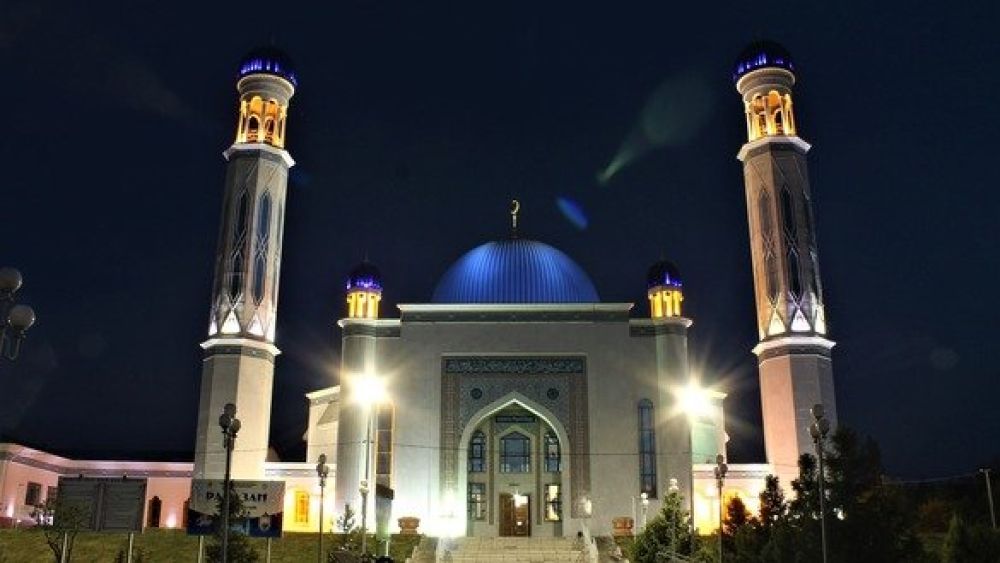

The Central Mosque of Taraz, a prominent religious edifice in Kazakhstan, has been a symbol of Islamic architecture and faith for many years. However, the history of mosques in Taraz dates back to the time when the city was a significant trading post on the Silk Road. The cultural exchange that characterized this era brought religious and architectural influences to the region, resulting in the establishment of several mosques.
The current structure of the Central Mosque contrasts with the historical architectural relics in Taraz but reflects the resurgence of religious expression following Kazakhstan's independence in 1991. The mosque, completed in the early 21st century, with its striking facade, sweeping arches, and grand minarets, stands as a testament to the renewed vigor of Islamic faith and culture in the region.
The mosque is renowned not only for its spiritual significance but also as a magnet for tourists seeking to explore Kazakhstan’s rich heritage. With its central location in Taraz, the stunning modern edifice attracts visitors with its intricate design, while its spacious interior is capable of accommodating thousands of worshippers, embodying both aesthetic beauty and communal harmony.
Visitors are often captivated by the mosque's stunning combination of traditional Islamic design and modern construction techniques. The use of vibrant colors, geometric patterns, and calligraphy inscriptions throughout the mosque's expansive interiors contribute to a tranquil atmosphere conducive to both meditation and admiration of Islamic art.
Travelers are encouraged to explore the surroundings respectfully, especially during prayer times, and to dress modestly as a sign of respect. The mosque offers guided tours for those interested in learning more about its architecture and the Islamic faith. Such tours provide a deeper understanding of local customs and religious practices.
Tourism in Taraz has benefited greatly from the Central Mosque’s presence. As a historically rich city, Taraz leverages its past, but the mosque adds a layer of modernity and active religious life that appeals to a broader audience. Religious tourism, in particular, has seen a surge as the mosque becomes a point of interest for those undertaking journeys focused on spiritual heritage. Moreover, the mosque has encouraged the development of nearby facilities such as hotels, eateries, and souvenir shops, thereby contributing to the local economy.
Eco-Tourism: Lately, Taraz is tapping into eco-tourism by highlighting its enchanting natural landscape and promoting sustainable travel. Tourist packages often combine visits to religious sites with excursions into nature.
Cultural Festivals: Various cultural festivals that include music, dance, and displays of local customs have become increasingly popular, drawing visitors interested in the region's traditional expressions.
Digital Presence: With advancements in technology, virtual tours and online information about the Central Mosque and Taraz’s historic sites have been made more accessible, aiding prospective visitors in planning their journeys.
Community Involvement: Local engagement in tourism has enhanced the visitor experience, with residents often serving as informal ambassadors, guides, and storytellers, helping to convey the spirit of Taraz’s history and contemporary relevance.
As a pinnacle of cultural and religious tourism, the Central Mosque is open to visitors throughout the year. Tourists are advised to check for opening hours, especially during religious holidays, and to be mindful of cultural norms. With its captivating history and vibrant presence, the Central Mosque of Taraz remains a must-visit destination for those exploring Kazakhstan’s diverse cultural tapestry.